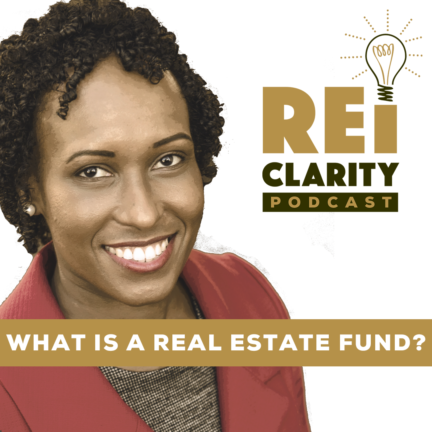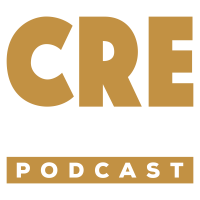
Our guest today is Lisa Hylton a syndicator, real estate investor, and podcaster. In this episode, we dig deep into real estate funds. We discuss how these funds work, what are the pros and cons of investing in them, and when you should start a fund yourself.
Learn everything about real estate funds and tune into this episode!
Learn more about Lisa and her journey at reiclarity.com!
“What’s key with the blind fund is that you need to be comfortable with the investment strategy and trust in the operator.”
03:51
Lisa started her career as a controller for private equity real estate funds. Recently, she started her own company as a real estate funds syndicator.
A fund is an entity, typically an LLC that has been created to invest in one or more real estate assets. The GP team manages the money.
Lisa explains that there are 2 types of real estate funds:
- Real estate syndication. Here, the investors invest in 1 or sometimes multiple assets that are known.
- Blind fund. This type of fund enables investors to invest, but none of the investments are known. Investors are investing in the investment strategy and plan, and it usually covers multiple asset classes that are typically value add or opportunistic investments.
“Investing in funds really works well for people who don’t have a lot of time but have money and want to invest in real estate in a very diverse way.”
11:48
Lisa shares the multiple benefits of real estate funds for passive investors:
- If the investors really like and trust the sponsor then they can get exposure to a variety of deals constantly.
- The investors don’t have to review new deals every time. The sponsors are acquiring deals and sending them a report every quarter.
- Funds work well for people who have money and want to diversify but don’t have much time.
According to Lisa, the only downside of investing in funds is the lack of control.
There are 2 different ways of paying out:
- Evergreen funds. These funds have no end. Every time the operators sell an asset they give the investors the option to reinvest.
- Funds with a set life. These funds end in 5-7-10 years. The operators have 1-2 years to raise and 3-4 years to deploy the money. However, even though there is a set sell date, this can change based on the market.
If you’re an operator who’s thinking about starting a fund, Lisa recommends making sure that you have a substantial deal flow. Also, if you’re focused on raising capital as part of a GP team, starting a fund can be beneficial because you can have your own entity.
“Being in the right place starts with you getting to know who you are.”
34:32
At the end of the episode, Lisa gives advice for people who want to take the leap from their W2 job into entrepreneurship.
- Be clear on the bigger vision and be flexible on how you get there.
- Work on your mindset.
- Structure your days, weeks, and quarters, and focus on your goals.
- Be around the right people. Hire coaches and be in the right masterminds.
Mentioned in the show:
- https://lisahylton.com/
- https://lisahylton.com/funds
- Her LinkedIn
- The Level Up REI Podcast
- Gay Hendricks – The Big Leap
- Brian P. Moran and Michael Lennington – The 12 Week Year
- www.shineinsurance.com/reiclarity
- The REI Clarity Framework
Learn how to grow your portfolio and reach incredible success the right way! Visit us here for everything you need to know: www.shineinsurance.com/reiclarity.
Special thanks to Lisa Hylton for taking the time to share so many great insights with us
If you enjoyed this podcast, there’s a couple of things we need you to do right now:
· SUBSCRIBE to REI Clarity on Apple Podcast, Spotify, or wherever you listen to podcasts
· While you there, please RATE & REVIEW the show
· SHARE with friends
· Finally, please, JOIN the REI Clarity Facebook Group
Then, please share the show with whoever you think it will inspire.
Until the next time, We truly appreciate you listening.
Need the REI Insurance Guy?

More great stories & information at:

